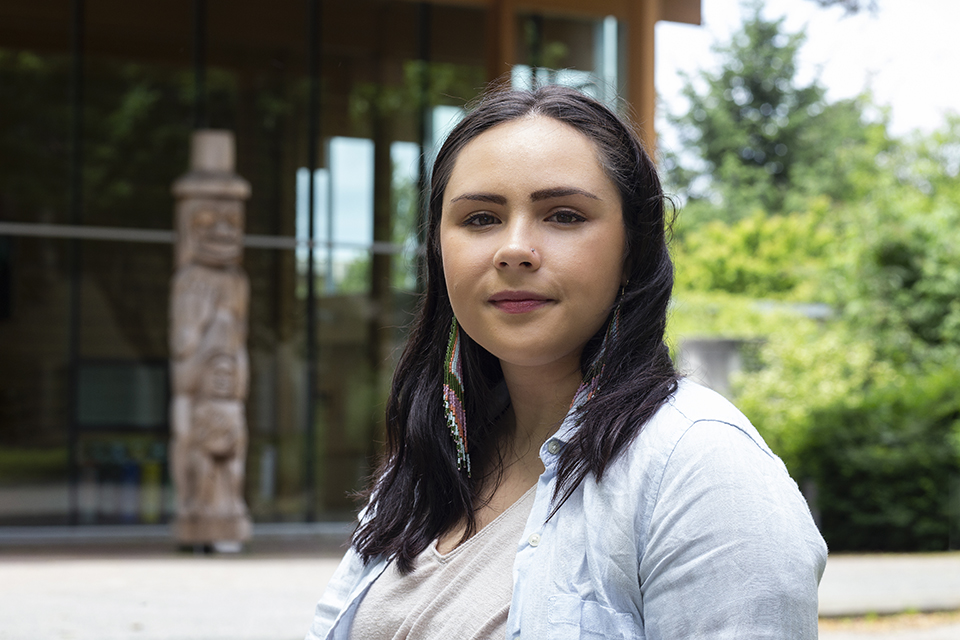Trudeau scholar addresses gender violence
Social Sciences, Human and Social Development
- Anne MacLaurin

Can Indigenous diplomatic legal principles help lead communities away from gender violence? Jasmine Dionne, a UVic PhD student in political science, is working with the Cree, Métis, Chipewyan and Dene community of Saka Wiyiniwak (Cree for “Boreal Forest Peoples”) in Northeastern Alberta to reimplement Indigenous legal principles, as part of a three-year scholarship, announced this month by the Pierre Elliot Trudeau Foundation. She is one of only 16 Canadian doctoral students receiving a $180,000 award.
Canada’s federal inquiry into missing and murdered Indigenous women and girls tabled its final report and recommendations in June 2019, calling on all provinces to make “transformative legal and social changes to resolve the crisis that has devastated Indigenous communities across the country.” But Dionne says nation-specific solutions to the crisis need to be developed and implemented to end the gender violence experienced by her community, located in the Fort McMurray and Wood Buffalo area.
Growing up, Dionne knew her Metis and Cree upbringing was unlike those of her non-Indigenous neighbours—but it was only when she was older that she found out her community was in the midst of an epidemic. The effects of gendered violence—missing and murdered Indigenous women, girls and two-spirit peoples (MMIWG2S)—were rippling across the country.
“The fear of my death or disappearance was a real concern, one that wasn’t known to me until years later,” says Dionne. “Not wearing makeup or having my whereabouts monitored by my parents was their way of protecting me,” she adds.
At 17 years old, Dionne left Fort McMurray, AB to attend the University of Calgary, where she discovered her passion for research and academic scholarship. It was through the encouragement of her honours thesis supervisor that Dionne applied to UVic’s Indigenous Governance program.
“I focused my Indigenous Governance master’s on health, wellness and Indigenous people’s connection to the land,” says Dionne.
“UVic is distinguished from other universities because there is an emphasis to support the growing fields of Indigenous research, politics, law and more,” she adds.
The guiding principle of her work is kanaweyimowewin, a Cree term meaning to protect and defend. That’s part of how she drew focus on the role of Indigenous law and diplomacy in renewing and restructuring kinship governance practices, in order to interrupt the cycle of gender violence.
Kinship governance is how we come to care for one another and how we structure our political/legal relationships (including diplomacy) to look after and provide care to one another.
—Jasmine Dionne, Trudeau scholar and UVic PhD student
“Jasmine brings both extensive work and personal experiences to her research as well as critical training in Indigenous politics,” says Dr. Heidi Kiiwetinepineskiik Stark. “She is precisely what a Trudeau Scholar should be—someone committed to putting into practice a new way forward.”
“Foremost, I want my research to be used first by the community in the ways they deem fit and useful,” says Dionne. “Ultimately, this research will benefit any community looking for a framework on how to end gender based violence using their own methods and principles.”
The Trudeau Foundation’s announcement of all 16 PhD students receiving 2020 scholarships, along with details about the program, is at trudeaufoundation.ca.


